Innovation and Design Thinking
Course Overview

We are all creative to greater or lesser extents, after all we choose various combinations of food to create our meals, we combine the clothing options we have to dress for work and social occasions. In fact we are constantly being creative day by day. However this skill is rarely develop in the workplace as it is normally seen to be the realm of true creative such as artists, musicians and creative geniuses. And yet developing creativity is the workforce has untold commercial benefits.
Goal of Course:
Recognizing and developing personal the creative potential in teams and individuals is a process that will be strengthened by this two day workshop which provides an introduction to design thinking.
The course will as usual contain experiential learning, practical exercises, videos, pair, group and individual exercises.
Duration:
2 Days
Language:
English/Arabic
Course Overview
The workshop will help participants to:
- Identify the difference between creativity and innovation
- Recognize their own creativity level
- Build a creative workplace environment or setting
- Explain the importance of creativity and innovation in business, the community and their lives
- Apply problem-solving steps and tools
- Use individual and group tools and techniques to help generate creative ideas
- Implement creative ideas in practice
Module Outlines
Day One
1. Welcome and Introductions
2. Course Overview
3. What is Design Thinking? – Participants define creativity and innovation. They will also explore their creative potential and assess where they believe they are on the ‘creativity scale’. They learn about what design thinking is and is not.
4. Challenges Best Suited To Design Thinking – learning about when design thinking really comes into its own, what challenges really suit ti.
5. The Creativity Mindset -Participants will look at how to increase their individual creativity and raise their creativity score.
6. Get Creative – Participants will review their pre-assignment and reflect on their own creative and innovative abilities.
7. Developing Creative Environments – ideas for building their own creative environment at work and at home and how to build creativity into their lives in general.
8. The Benefits Of A Creative World – Participants learn how creativity and innovation can have tangible benefits for their business, community and personal worlds.
9. Creativity V Problem Solving – Participants learn about a traditional problem-solving model and a creative problem solving model and in what ways they differ.
10. Defining the Challenge Or Problem – Participants will learn several ways to define a problem before problem solving can begin.
Day Two
11. The Four Questions OF Design Thinking – Based upon the Darden School of Business four model of design thinking.
12. The Creative Techniques Tool Chest – In-depth look at some creative thinking techniques including various models and techniques to inspire ideas.
13. Encouraging Creativity In A Team – Team creativity techniques that can be used by the participant and his team. Participants will use some of these on example problems to experience how the techniques work in practice.
14. Putting It All Together – Participants complete a problem-solving case study.
15. Workshop Wrap-Up And Action Planning
Customized Learning
Leap To Success is offering a variety of learning options to meet current realities and can be adapted to suit your business needs. These options include variants of online, blended and on-site course formats.
Face To Face Learning
Enabling you to have a face to face interactive and engaging learning experiences led by renowned industry experts and thought leaders with extensive practical experience who will employ a variety of interactive learning techniques, including short high-impact videos, case studies, assessments, role plays, in addition to on-going support.
Virtual Learning Labs
Interactive online learning held in real-time using Zoom and are led by international subject matter experts who incorporate case studies, breakout rooms, guided practice, simulations and discussions to maximise your learning experience.
General Methodology
Similar to any L2S training program, this program offers an interactive learning experience in which will allow the delegates to reflect on their learning through an informative, indulging, and fun classroom experience. The design of the training session focuses on the following attributes.
Concrete Experience: The delegates will learn by doing
Reflective Observation: Reflecting on the newly experienced skill-set
Abstract Conceptualization: Developing deeper understanding to the learned concepts
Active Experimentation: Providing the delegates with realistic tools that can be tested in the real life
Sign Up For the Course
